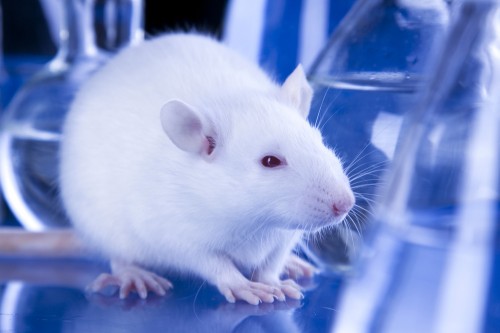Detecting feelings of regret in rats may help in the study of addictions

"Oh, no," said Sharon. "Look what a queue there is here! We should have stayed at the previous restaurant and waited there." When we were there, the line seemed too long to us. "Do you regret the decision?" Sharon looked again at the frustrating line that stretched in front of us, then raised her eyes in the general direction of the restaurant we had left. "I'm not sorry, I just regret that we didn't stay there." "That's interesting," I said. "Just this week, such a study was published on rats' feelings of regret."
the waiting period
The idea for the experiment came to the mind of Adam Steiner (Steiner), a neuroscience research student at the University of Minnesota in the USA, when he noticed that rats in his laboratory looked back with what seemed to him like regret, after losing an opportunity for a favorite meal for them. Steiner and his supervisor, David Redish, designed an experiment that would allow them to distinguish between mere disappointment over a missed meal, and a feeling of regret that includes reflection on what could have been. The experimental system consisted of a circular track and along it four "restaurants", in each of which the rat can get a portion of food with a different taste. At each such feeding station, when the rat presses the button to receive the food, it is randomly determined how long it must wait to receive the portion: between 45 second and XNUMX seconds. The length of the wait is reflected in the beep the rat hears: the higher the tone, the longer it knows the wait will be. However, if the rat gives up and leaves, the food station closes for a while, and the rat cannot return to it. After the rats had adapted to the facility, they were given one hour in each trial to obtain as much food as possible. The researchers hypothesized that if the rat left a station where it had to wait for a very long time, and then found out that it had to wait again, it would feel disappointment, rather than regret, because its decision made sense given the long wait. However, a rat that gave up waiting after a while, then moved on to the next feeding station only to find that the wait there was even longer, is expected to feel regret, because its assessment that the food at the next station would be more available was wrong.
Looking into the past
The researchers carefully observed the behavior of the rats, and mainly focused on those that left a feeding station, and discovered that even at the next station another long wait awaits them. In an article in the journal Nature Neuroscience, the researchers report that the rats acted exactly according to the model the researchers expected. In the scenarios defined as "disappointment", they mainly looked towards the food station where they were waiting for the next dish, or towards the next station where they intended to eat. In contrast, in the scenarios where the researchers expected regret, the rats' stomachs were mostly turned past the last station they left, and now they regretted it.
In the next step, the researchers implanted tiny electrodes in the rat's brain, in the orbitofrontal region, an area in the front part of the cerebral cortex, which is associated with the feeling of regret in humans and monkeys. People who have this area of their brain damaged, in many cases lose the ability to feel remorse for their actions. Monitoring the brain activity of the rats revealed that during the moment of regret, the activity pattern of their brain cells (the activation pattern of the electrical signals in the brain), is similar to that which was in the rats' brains when they were expecting their meal at the previous station, the one they now regret leaving. According to the researchers, this finding proves that the rats were preoccupied with thoughts about the past, perhaps imagining how they would have enjoyed the meal if they had not hurried to leave the restaurant, even though this does not contribute at all to getting their next meal.
behavioral change
In the next step, the research is expected to test the wider effect of regret on the activity in the brain, and to try to find out how the activity in the front part of the cerebral cortex affects other areas of the brain, and at the behavioral level - how the feeling of regret affects the decision-making of the rat later on. The researchers hope that the new findings will contribute to research in the field of addictions, because according to them addiction is one of the examples of a process in which the ability to make decisions is impaired... Suddenly I felt a strong blow in the ribs. It was Sharon's elbow "How much are you talking!? Can't you see it's finally our turn? You better come now or you'll really regret it!"
Related links:
The research article in the journal Nature Neuroscience
